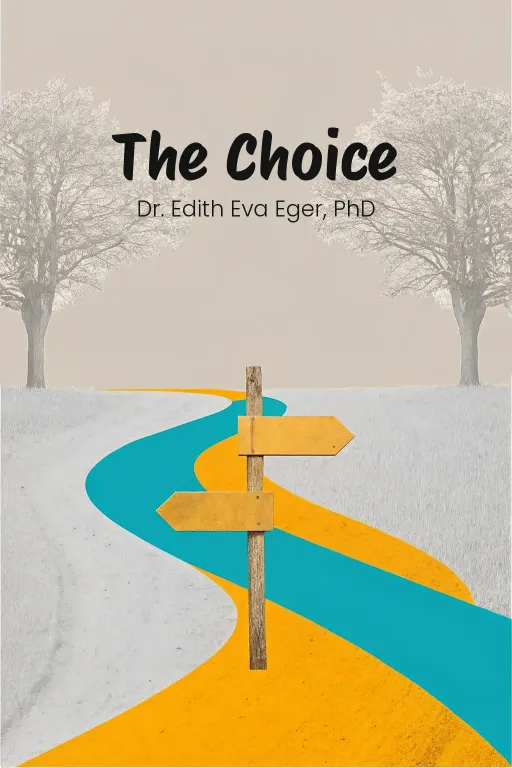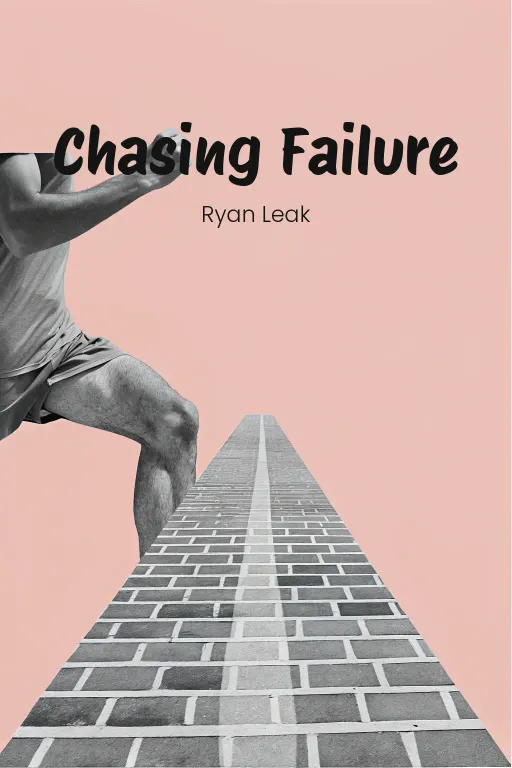
Sail Through Life: Beyond the Pyramid
Podcast by Beta You with Alex and Michelle
The New Science of Self-Actualization
Introduction
Part 1
Alex: Hey everyone, welcome back to the show! Today we're tackling a big one: what “really” makes for a meaningful, connected, and fulfilling life? Michelle: Alright Alex, aiming high right off the bat, huh? More than just paying the bills and avoiding existential dread, I presume? Alex: Way higher, Michelle. We're diving into Scott Barry Kaufman's “Transcend”. It's a fantastic book that builds on Maslow's hierarchy of needs, but takes it in some really interesting directions. Michelle: Ah yes, Maslow. The pyramid scheme of psychology. Safety, belonging, all that jazz, leading to self-actualization. So, Kaufman's not just saying, "Climb the pyramid harder!" is he? Alex: Not at all. Kaufman envisions human potential not as a climb, but as a sailboat. The hull provides safety and security, while the sail represents your need for growth and exploration. It’s about balancing those two things to navigate life with purpose. Michelle: A psychological sailing trip, huh? Okay, I’m picturing it. Some folks are always patching holes in their hull, just trying to stay afloat. Others just throw up a massive sail and hope for the best... straight into an iceberg. Alex: Exactly. And Kaufman brings in modern psychology to highlight how our individual growth and our connections with others “really” intertwine. He also talks about how awe and those incredible "peak experiences" can push us beyond ourselves, towards something bigger. Michelle: Sounds pretty profound. So, give us the CliffsNotes version – what exactly are we unpacking today? Alex: Okay, so first, we'll break down Kaufman's updated hierarchy of needs, and how the sailboat idea changes our understanding of security, love, and exploration. Then, we'll explore the driving forces behind personal growth – what “really” accelerates self-actualization. And finally, we'll dive into those awe-inspiring peak experiences that take us beyond just daily survival and make life... well, extraordinary. Michelle: A mental roadmap and a sailboat analogy? I'm in. Let's hoist the sails and see where this voyage takes us, Alex.
Revisiting Maslow’s Hierarchy of Needs
Part 2
Alex: Let's talk about Maslow's hierarchy of needs. It really has become a cornerstone in psychology. It's fascinating how something so iconic could be both groundbreaking and, in some ways, kind of misunderstood, don't you think? Michelle: Absolutely. The pyramid—everyone knows it, but how many really think about it deeply? You’ve got the basics at the bottom, right? Food, water, then safety, love, esteem, and finally, self-actualization at the peak. Classic. But what exactly is misunderstood about it? Isn’t it a pretty straightforward “ladder” of needs? Alex: That's the thing! Maslow gave us this great concept of human potential, but the pyramid makes it seem too simple. It implies you have to completely finish each step before you move on to the next. But life just isn't that linear. Michelle: Exactly! I mean, nobody wakes up and says: "Okay, safety's done. Today, belonging. This weekend, I'll tackle esteem." It's way more chaotic than that. Alex: Right. That’s where Kaufman's reinterpretation is so valuable. He uses a sailboat as a metaphor instead of a fixed hierarchy. It shows that our needs are all related and always changing. The hull of the boat is security – like safety, belonging, and feeling connected. If your hull isn't strong, you can't really think about growing. Michelle: So, no hull, and you're basically just inviting waves of chaos and existential dread to sink you. Got it. Alex: Pretty much. But once you have that hull, you can raise the sail. And the sail represents growth, creativity, exploring new things, self-actualization, even something bigger than yourself. The idea is that safety and growth work together. Michelle: Okay, so in practice, you could be struggling financially, a hull-level thing, but still find meaning in making art or connecting with friends. You don't just stop growing while you sort out your bills. Alex: Exactly. Kaufman's model recognizes that people often pursue growth even when other needs aren’t fully met. He talks about Viktor Frankl, who survived the Holocaust and found meaning in the middle of all that devastation. Michelle: Frankl's story is incredible. He had nothing – no food, no safety, no dignity – and yet he still found a purpose. He found meaning thinking about his wife or imagining how his work would live on. It's amazing. Alex: Yes, and that's a powerful example of how safety and growth play off each other. Even when people face the worst situations, this desire to find meaning and connect with others is still there. It's not about following a set path but balancing and adapting. Michelle: So, Kaufman's saying these needs aren't boxes to tick, but threads that weave in and out. How does that change how we view society, though? Maslow's pyramid always felt like something for a psychology class, not the real world. Alex: That’s a great point. Kaufman is clear that personal growth is not just for the individual alone. He reorients the framework so that personal flourishing is tied to collective well-being. Like a sailor needing a safe harbor to repair their boat, people need supportive communities to fully thrive. Michelle: Ah, the “hull of collective safety.” Honestly, about time, right? We've got societies running on who can get to the top, achieve the most. Then we wonder why everyone's so lonely. Alex: Exactly. Kaufman criticizes this “me first” attitude. He says we need to prioritize empathy and connection. When we make our communities safer through fostering relationships and creating fair systems, everyone can raise their sails. Michelle: Okay, hold on. Let me play devil's advocate here. If we focus less on individual success and more on everyone's progress, won't people feel like their own goals don't matter? Alex: It's a fair question. But Kaufman isn’t against personal fulfillment, he's saying the two go together. You really flourish when both individual and collective needs are met. If your own boat is doing well, you’re in a better position to help others repair their hulls or set their sails, you know? It’s not about losing yourself but expanding your impact. Michelle: I see. Kind of like that airline rule – put on your own mask before helping others. But Kaufman’s version is, stabilize your own boat, then lend a hand to the next sailor. Alex: Exactly! It's recognizing that humans thrive in partnerships, not alone. Kaufman even applies that to how we deal with big problems. Loneliness, for example, isn't just a personal problem, but it affects everyone's safety and growth. Fixing that is more than just telling people to make friends. It’s a systemic issue. Michelle: Like reducing income inequality, which causes stress at that “hull” level, or encouraging policies that help with work-life balance so people have time to connect. Alex: Yes, and making sure people feel valued and supported. It's not about being perfect but creating spaces where safety and growth are possible. Michelle: So, Kaufman’s sailboat isn’t just a clever way to think about life. It’s a guide for how we build everything, from our relationships to our societies. It’s actually refreshing, you know? It accepts that life’s messy without pretending there’s a foolproof plan for smooth sailing.
Growth and Self-Actualization
Part 3
Alex: So, understanding these foundational needs really sets the stage for seeing how they play out both personally and in society. And that brings us to something really interesting in Kaufman's work: what drives personal growth and self-actualization. We're talking about exploration, love, and creativity – not just as nice ideas, but as real, practical parts of humanistic psychology that actually help us change and grow. Michelle: Okay, let’s unpack that a bit. Exploration, love, and creativity – they sound great, right? But, they also sound kind of… abstract. What makes them “practical”? How does this growth stuff actually work in real life? Alex: That’s a great question, Michelle. Let’s start with exploration. Kaufman sees it as curiosity put into action. It’s that drive we have to engage with the unknown, to step outside our comfort zone, and actively seek out growth – even when it’s a little scary. Think about Alex Honnold’s free solo climb of El Capitan. Michelle: Wait, you mean the guy who climbed a massive cliff without any ropes? I watched that documentary! My palms were sweating just watching him. So, I’m guessing the message here is something like, "be curious, even if you’re terrified," yeah? Alex: That's definitely part of it! Honnold's climb really highlights the balance between curiosity and being prepared. His exploration wasn't just reckless. He spent years rehearsing, planning, and getting ready physically and mentally for that challenge. His curiosity pushed him to redefine what he thought was possible, but it was all built on discipline and being intentional. Michelle: Okay, but let's get real here. Most of us aren't climbing cliffs in Yosemite. How does exploration apply to someone who's not, you know, risking their neck for a thrill? Alex: Exploration doesn't have to be extreme, Michelle. It can happen in everyday life. Think about being intellectually curious – learning a new skill, tackling a challenging book, or having a really deep conversation. Studies even show that people who actively seek out new experiences and different perspectives tend to develop better problem-solving skills, more empathy, and become more adaptable. Michelle: So, if someone tries cooking a dish from a different culture or gets into a debate about, say, the ethics of AI, they’re planting a seed for personal growth? Alex: Exactly! And exploration can also strengthen your relationships. Think about doing something new with a partner – like starting a hobby together, or even just talking about values you've never really explored before. These experiences can deepen your bond and create moments of discovery together. Personal growth and relationship growth go hand-in-hand. Michelle: Speaking of relationships, that’s a pretty good segue into our second driver: love. But you mentioned there are two types of love, D-Love and B-Love. Could you break those down for us? Alex: Sure. Abraham Maslow talks about Deficiency-Love, or D-Love, and Being-Love, or B-Love. D-Love is about trying to fill a void inside ourselves. It’s using love to satisfy unmet needs. It’s often conditional and tied to needing validation or security. B-Love, on the other hand, is unconditional and selfless. It’s about appreciating someone for who they are, not for what they can give you. Michelle: Alright, B-Love sounds amazing in theory, but can you actually achieve it? Because I feel like most relationships are at least a little transactional – whether we want to admit it or not. Alex: That’s a fair point to bring up. B-Love isn’t about being perfect, but it’s more about trying to be authentic. A great example of B-Love in action is Claire Nuer. She survived the Holocaust and then used her own suffering to build healing programs for others. Her way of thinking was all about giving love, safety, and acceptance, whether she received anything back or not. Michelle: Wow, that’s… a level of altruism and grace that feels almost superhuman. Alex: It’s rare, but it's not impossible. B-Love is transformative because it goes beyond just our own selfish needs. It helps us form more secure attachments, which boosts our self-esteem and makes us more resilient. When we practice B-Love, we create environments where growth can really flourish – not just for ourselves, but for others too. Michelle: Okay, here’s a question for you: If love starts as D-Love—because, let's face it, most people aren't saints—how do you move toward B-Love? How do you actually make that shift in a relationship? Alex: It really comes down to self-awareness and letting go of the need to control the outcome. Erich Fromm, in The Art of Loving, says that mature love evolves from “I love because I’m loved” to “I am loved because I love.” It means giving love freely, without expecting anything in return, and trusting that it will create genuine connections. Michelle: Got it. Love’s less about keeping score. It is more about contributing to something bigger than yourself. So, what about the last driver you mentioned—creativity? How does that fit into this whole self-actualization picture? Alex: Creativity is essential for self-expression. It's about finding new and innovative ways to engage with life and solve problems in a way that feels authentic to who you are. What's really cool is that creativity isn't just limited to artistic stuff – it shows up everywhere. Think back to Alex Honnold's climb – that was as much about solving problems mentally and adapting to the situation as it was about physical ability. Michelle: Right, but again, Honnold's at the summit—literally. How does creativity play out for the rest of us? Alex: It might look like journaling to help you process your emotions, brainstorming ways to better balance work and personal life, or working together with others towards a shared goal. Creativity often means stepping into the unknown, being open to new experiences, and being okay with failing along the way. That openness is what really fuels innovation and resilience. Michelle: So, it’s less "paint a masterpiece" and more "look for solutions and embrace the unpredictable." I can get on board with that. Plus, there’s that stress-relief you mentioned – like how people use art or music to let out their emotions. Alex: Exactly. Creativity brings together being curious and taking care of your emotional well-being. And, just like exploration, it can make your relationships stronger. Working together creatively can spark new ideas and create deeper bonds, whether you're brainstorming with your team at work or having a meaningful conversation with a friend. Michelle: I’m beginning to see how these drivers—exploration, love, and creativity—don’t operate on their own. They’re all pieces of the same puzzle, woven together in this messy, dynamic process of human growth. Alex: Exactly! When we embrace these drivers, we not only navigate life more fully but also create ripple effects that uplift others. Growth and self-actualization become more than personal achievements – they contribute to a shared sense of connection and transformation.
Transcendence and Peak Experiences
Part 4
Alex: So, building on growth, we naturally get to what Maslow considered the peak of human experience, which is transcendence. These, like, life-altering peak experiences move us beyond just ourselves and into these universal truths, interestingly linking individual fulfillment to a healthier society. Michelle: Right, so we're talking about the really big questions today. It's not just about surviving, or even thriving, but touching something cosmic? You know, for me, it's those moments when life feels, well, less chaotic and more… meaningful. Briefly, of course. Alex: Exactly. Maslow believed transcendence was the highest level of human development; it's where we connect with universal values like beauty, truth, and compassion, and our self-identity expands to include connections with something vastly bigger. Michelle: Okay, hold on. “Transcendence” is one of those words that risks sounding abstract or even, let’s be honest, a bit too "woo-woo." Can we make this concrete? What does transcendence actually look like in daily life? Alex: Good point, Michelle. Transcendence isn’t necessarily about some kind of spiritual enlightenment on a mountaintop. It can be moments of awe, intense love, or clarity, where your sense of self sort of melts away and you feel deeply connected to others, or even the universe. Maslow called these "peak experiences," and they are these transformative flashes where you perceive life's incredible beauty and interconnectedness. Michelle: So, it's that overwhelming feeling you get at a concert, or when you're watching an amazing sunset, or even seeing someone do an act of incredible kindness. It's those times when it feels like you're plugging into something bigger than yourself. Alex: Exactly! These peak experiences often challenge our normal sense of ego. For an example, David Yaden's story from his college years really highlights this. He was in a tough spot, feeling very disillusioned, and then he had this amazing moment of emotional clarity. He felt this transformative feeling of love and unity wash over him, and it changed his worldview. Michelle: Wow, a total 180 from despair to connection, all in one moment. Sounds intense. Was this like a sudden epiphany he couldn't explain? Alex: In a way, yes. He described it as overwhelming warmth, and a profound awareness of how everything in life is connected. And that single moment didn't just feel good at the time, but reoriented his entire path. He became more deliberate about personal growth and self-discovery, which gave him a new way to appreciate life. Michelle: So, these peak experiences aren't just these feel-good moments and can become turning points in your life. But, does everyone have the potential for transcendence, or is it more of an exclusive thing? Alex: That’s a great question. Maslow believed that these peak experiences aren’t limited to any specific group. Anyone can have them, regardless of their background. Interestingly, they’re often triggered by universal experiences like acts of kindness, spending time in nature, encountering art, or even through self-reflection. Michelle: Okay, but being practical, can we actually create these experiences? Or are they more like dumb luck, waiting for awe to strike? Alex: It's not just luck. There are things you can do to cultivate a lifestyle that's more open to transcendence. Maslow thought that "transcenders," or people who regularly reach this state, actively pursue opportunities for awe and connection ,rather than waiting for it to happen. Michelle: Right, so transcendence needs some effort. Noted. So what are some of these tools we could use without, say, booking a yearlong retreat in the Himalayas? Alex: One of the most accessible tools is meditation. Practices like mindfulness or loving-kindness meditation create what psychologists call "Hypo-egoic states," which shifts you from thinking about yourself, to being in the present moment. This cultivates a sense of connection with everything. Michelle: Right, so meditation is the gateway to, like, shutting down the noise in your head. What else? Every time the topic of transcendence comes up, someone seems to mention psychedelics, like psilocybin or ayahuasca. Alex: You're absolutely right. They've been the subject of increasing research. Psychedelics, used in a controlled environment, can create feelings of interconnectedness, awe, and perspective shifts, which all align with transcendence. But it's important to remember that these substances need careful guidance and integration and aren't quick fixes. Michelle: Yeah, think the experience loses its shine if it leaves you emotionally wrecked afterwards. Besides meditation and psychedelics, what else can we do? Alex: Awe-inducing environments are another way. Think about spending time in nature, like looking up at the night sky, or encountering incredible works of art. These experiences expand your perspective, reduce self-focus, and bring to light the immensity and beauty of life. Michelle: So, basically, surround yourself with things that put your problems into perspective, and make them feel smaller than they “really” are. Alex: Yes, but there's more to it. Awe not only makes things seem smaller but also encourages gratitude. When you're touched by the majesty of a landscape or a powerful song, it reminds you of life's richness, which goes beyond your daily concerns. Michelle: Okay, so meditation, awe, and maybe some forms of technology, like using VR to artificially make these immersive experiences. Seems like we have tools today like never before. But how does any of this help with the big picture? How does transcendence connect personal growth to a healthier society? Alex: That's key, Michelle. Maslow discussed "metamotivations"—actions driven not by our own personal needs, but by universal ideals like beauty, justice, or compassion. These motivations drive people to dedicate themselves to causes beyond their own needs. Transcendence isn't just about making you happy, but also about creating a more interconnected and compassionate society. Michelle: Like the concept of the Buddhist Bodhisattva, right? Enlightenment is not the end goal, but helping others along the way. Alex: Exactly. Transcenders see beyond these differences, whether they're cultural, ideological, or whatever. They focus on unity, and our shared humanness, bringing, not only personal happiness, but also improving society. Michelle: So, transcendence isn't an escape from the world, but diving deeper into it, with a greater responsibility and connection. Makes you wonder if, as a society, we're too distracted to pursue this. Alex: Distraction is definitely a challenge, but we can counteract this with tools like mindfulness, seeking awe, and even how we design our shared spaces. When we prioritize practices and systems that encourage connection to these universal values, we collectively support a path towards transcendence. Michelle: Alright, Alex, I think I'm getting it now. Transcendence might sound lofty, but at its core, it is about blending the personal with the communal, connecting something bigger than ourselves.
Conclusion
Part 5
Alex: Alright, so to bring it all together, today we dove deep into Scott Barry Kaufman's fresh take on Maslow’s hierarchy, right? That sailboat metaphor really flips the script on the old pyramid. It's this cool balancing act between feeling secure and pushing for growth. You know, getting your hull stable so you can actually raise your sail and explore, get creative, and really become who you’re meant to be. Michelle: Exactly. And we got into what really fuels that growth – curiosity, love, and creativity. Turns out, you don't grow in isolation, but by connecting with other people. And then, of course, we talked about transcendence. I mean, those moments of pure awe and connection, they don't just lift you up, they actually have a ripple effect out into the world. Alex: Precisely! Transcendence is that reminder that what we do as individuals is totally linked to the bigger picture, the well-being of everyone around us. It’s not about escaping the messy parts of life, but about diving right in and finding meaning, finding that shared human experience. Michelle: So, what's the big takeaway here? Growth, whether you're talking about yourself or a whole community, it's all about navigating the rough patches and nurturing connections. So, maybe the question to ask yourself is—what's one small thing I can do today to either stabilize my hull or raise my sail a little higher? Alex: Beautifully put, Michelle. And hey, let's remember, this journey isn’t about being perfect, it's about making progress. Keep exploring, loving, and creating. Who knows? Your next moment of awe might be closer than you think! Michelle: And if that involves coffee and a decent Wi-Fi connection, well, all the better.









